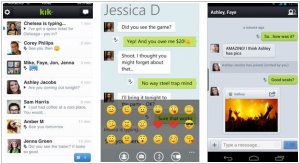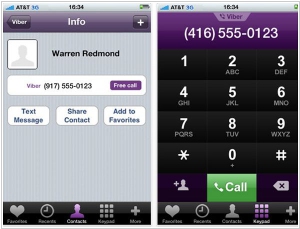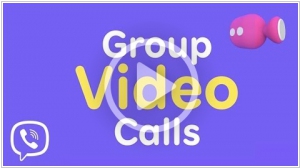Kik vs Viber
June 04, 2023 | Author: Adam Levine
Kik and Viber are both popular messaging apps that offer unique features and cater to different user preferences. Kik is known for its simplicity and emphasis on anonymity, allowing users to chat using only a username without sharing personal information. It offers features like group chats, multimedia sharing, stickers, and a built-in web browser. Kik also supports bots for added functionality and entertainment. On the other hand, Viber is a comprehensive messaging and calling app that offers free voice and video calls, instant messaging, multimedia sharing, and a wide range of stickers and emojis. Viber also supports features like public chat communities, secret chats with end-to-end encryption, and integration with other services.
See also: Top 10 Business Messaging platforms
See also: Top 10 Business Messaging platforms
Kik vs Viber in our news:
2022. Messaging app Viber launches Payments - a new digital wallet
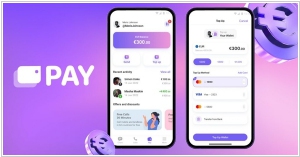
Viber, the messaging app owned by the Japanese e-commerce giant Rakuten, is introducing Payments on Viber, a new service that enables users to establish digital wallets linked to their Viber accounts. These Payments wallets can be connected to other bank accounts, as well as Visa and Mastercard, allowing users to make bill payments, purchase goods, and transfer money to other individuals. The initial launch of this service will focus on peer-to-peer transfers, which will be free of charge. However, there may be associated fees for services like payments to businesses. The service is initially rolling out in Germany and Greece, with plans to expand across Europe and eventually to Viber's broad global presence in 180 countries, spanning this year and the next.
2020. Viber launches group video calls for 20 users
Viber introduces its latest feature, the Group Video Calls, catering to the needs of large meetings and online classes. This new functionality allows for group video calls with a maximum of 20 participants and no time limit. Viber has already gained significant popularity with its Group Audio Calls, accommodating up to 20 individuals, and group chats, supporting up to 250 people. Given the current circumstances, Viber has expanded its capabilities by incorporating video communication. During Group Video Calls, the speaker is visible to all participants; however, users have the option to pin any video to their screen, whether it's their own or another participant's. Moreover, users can mute themselves or disable their video stream, as well as determine if other participants have activated the mute or video-off settings.
2017. Viber acquired shopping keyboard startup Chatter Commerce
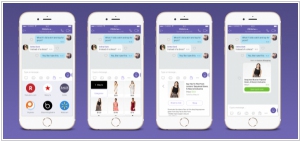
Earlier this year, messaging app Viber ventured into shopping services with its Instant Shopping feature, enabling users to search for items available for purchase directly within the app's interface. In a strategic move to compete with alternative platforms, Viber has recently acquired Chatter Commerce, the startup that played a significant role in developing this feature. This acquisition positions Viber to enhance its shopping capabilities. Speculations suggest that even Amazon is working on a consumer-centric messaging app. Additionally, Facebook has been expanding Messenger beyond basic chat, incorporating transactional features, bots, and other services. This highlights a notable trend among messaging apps, leveraging their existing user engagement to drive business growth through various avenues.
2017. Viber introduced secret chats with self-destructing messages
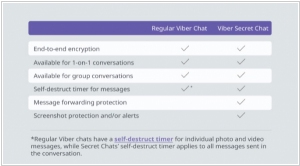
Viber has released an update for its iOS and Android versions, introducing the highly anticipated feature of "Secret Chats" to the service. Following in the footsteps of Snapchat, Facebook, Telegram, and other platforms, Viber now allows its users to set timers on their messages, resulting in self-destruction after a specified duration. Additionally, this new feature notifies the sender if the recipient takes a screenshot, a functionality initially popularized by Snapchat. Viber appears to be emphasizing its commitment to security by showcasing these features, setting itself apart from other messaging platforms. The introduction of end-to-end encryption and hidden chats last year further solidified Viber's dedication to privacy and security.
2017. Viber adds e-commerce feature
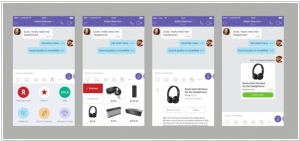
Messaging app Viber, owned by e-commerce company Rakuten, aims to capitalize on e-commerce while avoiding intrusive advertising. Viber plans to introduce a new feature where users can explore items for sale related to their current chat by tapping on a small shopping bag icon at the bottom of the screen and conducting a search. The initial launch of this feature will take place in the U.S. on March 6, with plans to expand to other markets later. Users will not be able to make purchases directly within Viber; instead, they will be redirected to the relevant page in the respective brand's app via a deeplink.
2016. Viber launched Public Accounts for businesses
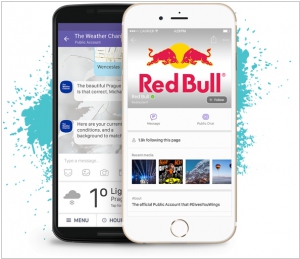
Messaging app Viber is introducing Public Accounts for businesses and brands seeking to engage with Viber users for marketing purposes, customer service, or a combination of both, without the requirement of adding the account as a contact first. Users can now simply subscribe to these accounts. Additionally, by the end of November, Viber's API will be seamlessly integrated with approximately 10 to 15 popular CRM packages, enabling businesses to manage their Viber messages alongside their other social media, email, and messaging interactions. With the introduction of Public Accounts, Viber joins the ranks of other consumer-focused messaging apps such as WeChat, Line, and Facebook Messenger, all of which offer similar features.
2016. Viber adds end-to-end encryption and hidden chats
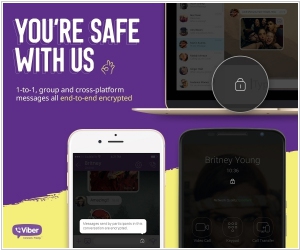
Following in the footsteps of WhatsApp, Viber, another popular messaging app, has introduced end-to-end encryption for all messages and calls on its platform, including group chats (supporting up to 200 people). Additionally, Viber now offers a feature to 'hide' chats on your account, complementing its existing expanded deleting function. These new privacy features are available across Android, iOS, PCs, and Mac desktops, and can be activated by updating to the latest app version (6.0) and reauthenticating the app via QR Code. Viber's encryption provides different levels of security, visually represented by a color-coded lock displayed on the right side of the screen.
2015. Messenger Kik adds QR codes to connect users and brands
Mobile messenger Kik has taken inspiration from WeChat by introducing QR codes to enable various interactions directly within the app. These interactions range from purchasing a soda to printing a photo. While Kik aims to achieve extensive engagement in the long run, their initial implementation of 'Kik Codes' is relatively basic. By scanning these codes, users can connect with each other, add new participants to a group chat, or establish a connection with a brand on the platform, which is particularly intriguing. Kik had previously introduced promoted chats to enable brands like Burger King to engage with users officially. The company revealed that more than 16 million users have interacted with branded bots, resulting in over half a billion messages exchanged. Kik Codes align well with this concept, as they facilitate connections that would otherwise be challenging to establish. For instance, a code offering a free pizza or a monetary incentive can entice users to scan and engage, enhancing the overall experience.
2015. Messenger Kik raised $50M
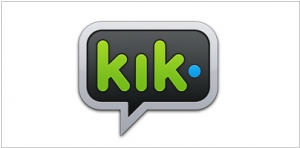
The Canadian company behind the messaging app Kik has recently secured $50 million in funding from Tencent, the renowned creator of WeChat. Kik has consistently demonstrated its commitment to innovation in an industry that witnesses rapid turnovers. Moreover, Kik has successfully generated revenue. As of now, Kik holds the 30th position among the top free apps on the App Store and ranks 7th in the social networking category, both within the United States. By collaborating with Tencent, Kik aims to compete with messaging giants such as Facebook by continuously exploring novel ideas and experimenting until they discover a breakthrough—something at which Tencent has excelled.
2015. Messenger Kik unveiled in-chat web browser
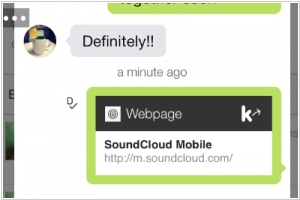
Kik has taken a step further in integrating the web into its chat platform by upgrading its in-app sidebar browser into a fully functional browser for its messaging app. This upgrade allows Kik users to now access a complete browser within their conversations with colleagues. Previously, the browser was limited as it was loaded from the sidebar within the chat window. This enhancement offers a more immersive experience, enabling Kik's 200 million registered users to browse the web while engaging in conversations. Additionally, it provides them with the convenience of easily sharing web pages and services during chats. This is particularly significant as Kik's content platform is based on HTML. The company has plans to introduce a payments service this year and subsequently incorporate commerce and other services within its app, all built on HTML and the browser experience.

